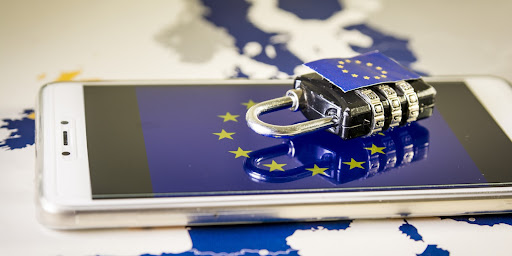If there is one truth when it comes to digital safety practices, it is that backing up personal data is always a good idea. As simplistic as this sounds, it is nowhere near enough implemented in the industry, and this is just one fundamental cybersecurity element of the various data protection and regulation acts out there. One reason for having such legislation in place is protection (like backing up data) because cybercrime is ramping up, and with that cyber-physical attacks such as devastating ransomware attacks. Phishing is also just as prevalent a threat. Both of these attack vectors account for hundreds of billions of dollars, at the very least, in incurred financial losses to the economy every year. These cybercriminal schemes can be the end of thriving SMBs and a serious thorn in the side of the largest organizations.
Another reason is that, as the digital transformation pushes forward, and sophisticated cybercrime latches on even harder, it is becoming increasingly important that the business sector complies with the set data protection and regulation standards. The consensus in the entire connected industry is that businesses are constantly having to adapt to changes in the technological realm, and especially where data protection and regulation law and legislations are concerned. Businesses that do not comply with set standards are usually left out of business processes by others that do comply.
The third reason is privacy concerns, such as the questions of who sees what information and why, and how it is controlled where both enterprise and government are concerned. This is also a large part of data protection and regulation, therefore creating a fair data sharing standard where correct, ethical, and moral practices surrounding information are set is key. These aspects are also a fundamental part of data protection and regulation standards.
What is Data Protection And Regulation?
The concept of data protection and regulation is not new and has existed in some form or another since the 1970s -only that it was not aimed at enforcing data on the internet back then. Acts relating to the digital realm only started to appear in the 90s. Acts, legislations, and standards relating to data protection today refer to how information is used by entities like enterprises and the government and how this is all enforced e.g. how Big Data operates. There are several such acts already in place, while some countries are still struggling with the implementation of these standards. The well-established ones that span internationally are e.g. the GDPR and the CCPA.
The core purpose of these data protection and privacy legislation is to address how information is processed and protected within the consumer, businesses, and government triangle. According to the United Nations Conference on Trade and Development, adoption of these standards by nations all over the world is trending upwards; with 66% of countries with legislation, 19% without, and 10% of countries with draft legislation already prepared. For 5% of the world, there is no data at all -which could be due to a lack of internet penetration in those regions.
What is The Future of Data Protection And Regulation?
Such regulations are going to be a mirror reflection of where the digitally transformed economy is heading. Secondly, global geopolitics is also going to be a large factor as to how the future of data protection and regulation will look like. As such, the number of people online, internet penetration, and the number of mobile devices in the world are all trends that are rising sharply every year -not to mention the world of IoT- and will directly affect the constitution and construction of data protection and regulation acts.
The EU’s GDPR has greatly augmented global awareness and standards surrounding data protection and privacy over the years, enabling and inspiring others to follow suit. The transfer of data across borders is a complex issue, but as awareness and compliance rise the consistency of regulations should be less of an issue in the future. Adoption of emerging technologies like A.I, migration to the cloud, perhaps even quantum technology in the not-too-distant future will all have to be enforced by data protection and regulation acts which in turn will have to be modified themselves to suit new paradigms. Even further into the future, data transmission or data storage in space would require specific legislation, for example.
One example of how data protection and regulation acts are molded by technology and the global political situation is the case of the UK. The UK has left the EU and is facing several dilemmas as to how to approach data regulation and protection. An excerpt from a text posted on the Hogan Lovells Engage website by Eduardo Ustarann puts things into perspective, “Shall we follow the direction of travel of the past 25 years and opt for the continuity and certainty provided by the GDPR or shall we use the departure from the EU to make radical changes to the regulation of data use and privacy?”. The article goes on to state, “The UK must follow its instinct and lead the way by promoting progressive regulation that is in sync with a digitally borderless world. In doing so, it should look at what other leading democracies are doing and be prepared to be aligned in approach. In its relation with the EU, it should find a magical yet pragmatic way of achieving a mutual recognition of frameworks that paves the way for seamless data flow”.
Data protection and regulation acts are here to stay, just like global trade regulations are. The digital domain is the future of society. To that end, in the future, almost everything will be online and digitally transformed, including everything from critical infrastructure to life support systems, to entire smart cities, the list is endless. For this reason, it will be extremely vital that, first and foremost, data and privacy are internationally recognized and enforced via an ethical and moral lens, and that data flows seamlessly in an unhindered manner.
